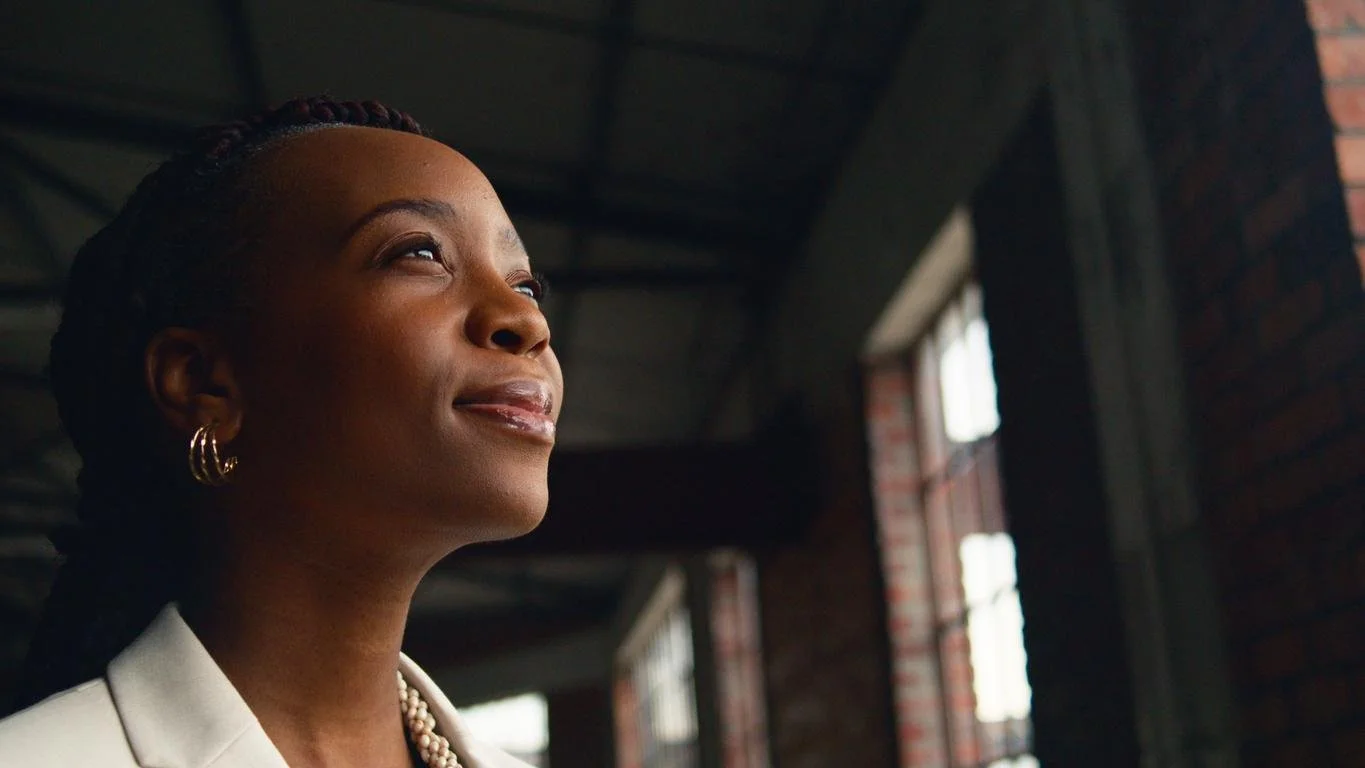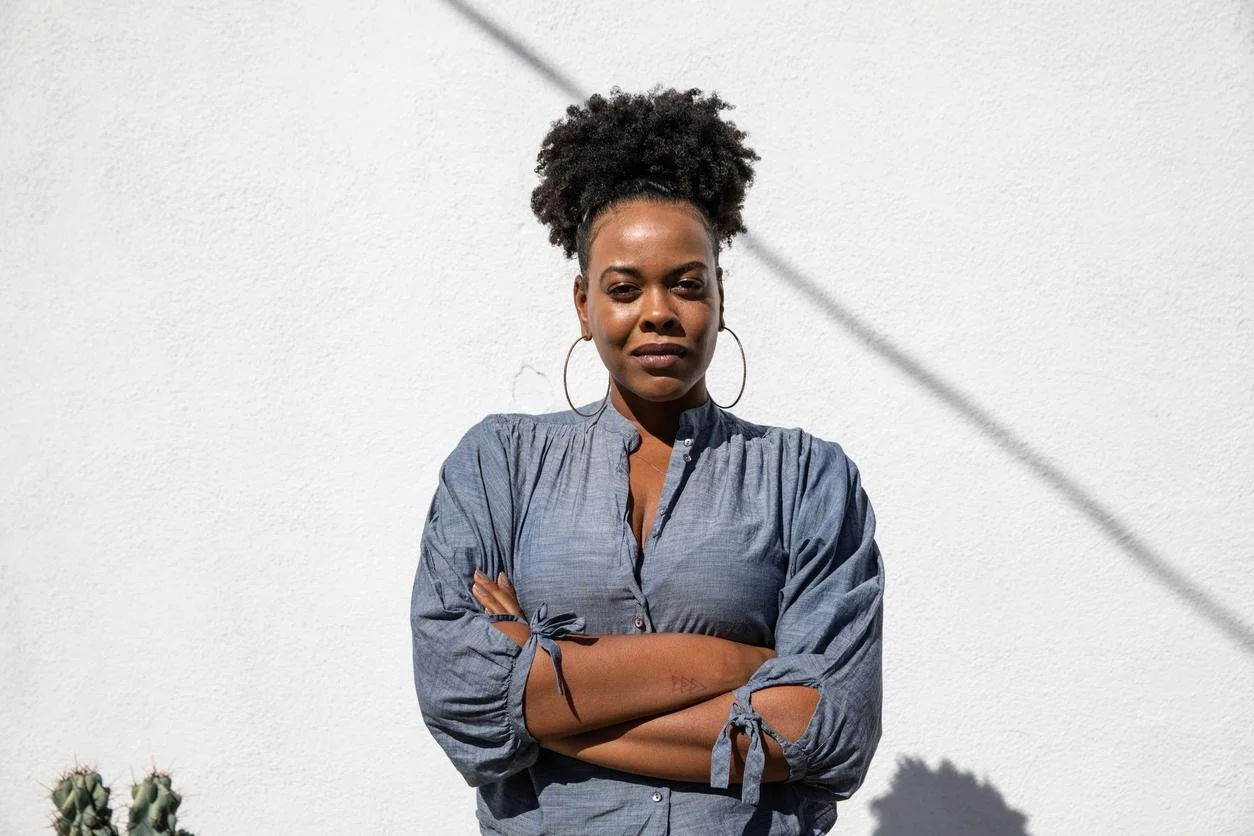When You Don’t Get What You Want: The Hidden Blessing in Disguise
Embrace life’s redirection as a path to greater opportunities by shifting your mindset from rejection to trust in the journey’s bigger picture. We discuss it here!
Photo Credit: Jacob Wackerhausen via iStockPhoto.com
By: Jamila Gomez
Life often has a way of throwing unexpected curveballs, especially when you’ve set your sights on something specific—a job, a relationship, a goal—and it doesn’t materialize. The disappointment can be overwhelming, leaving you questioning your worth or abilities. However, what if not getting what you want is the universe’s way of paving the path to something better?
The concept of “redirection, not rejection” offers a powerful shift in perspective. While it’s natural to feel crushed when things don’t go as planned, stepping back and trusting that the bigger picture holds unseen opportunities can be transformative. Often, the things we desperately chase may not align with our long-term happiness, even if they seem ideal in the moment.
The Wisdom of Letting Go
There’s an age-old saying: “When one door closes, another opens.” It’s easy to dismiss as a cliché when you’re grappling with disappointment, but countless stories prove its truth. Think about the times you didn’t get a job you thought you wanted, only to later land one that better aligned with your skills and passions. Or when a relationship ended, and later you found a partner who truly understood and supported you in ways you didn’t know were possible.
These experiences highlight that life often withholds what we want not as a punishment, but as protection. Perhaps that job would have been toxic, or that relationship would have held you back from becoming your best self. When you don’t get what you want, it’s often because there’s something better waiting, though you might not see it right away.
The Power of Trust
Trusting the process doesn’t mean passivity or blind faith. It means acknowledging that your current situation, no matter how painful, is part of a greater journey. Instead of focusing on what you’ve lost, ask yourself: What am I gaining instead? The answer might not be immediate, but in hindsight, the pieces often fall into place.
Consider Thomas Edison, who famously remarked, “I have not failed. I’ve just found 10,000 ways that won’t work.” Every “failure” in Edison’s quest to invent the lightbulb was a stepping stone to ultimate success. Similarly, when you’re denied something, it can propel you toward a path you never considered but one that’s far more fulfilling.
Moving Forward
The key is to remain open to possibilities. Don’t let disappointment cloud your ability to see opportunity. Life is dynamic, constantly changing, and often the things we think we want are merely stepping stones to something greater.
So, the next time you don’t get what you want, pause, breathe, and trust. The universe might be clearing the way for something extraordinary—something that will make you realize why your original plans didn’t work out.
YOU MAY ALSO BE INTERESTED IN:
SHARE TO SOCIAL MEDIA
Failure Isn’t a Full Stop: Keep Going
Failure is not the opposite of success but a stepping stone to growth, offering valuable lessons that pave the way for future achievements. We discuss it here!
Photo Credit: Meeko Media via iStockPhoto.com
By: Jamila Gomez
First things first: failure doesn’t define you. It’s not the period at the end of your story; it’s a comma. Messed up on a project at work? Got ghosted after putting yourself out there? Launched a side hustle that flopped? Cool. That just means you’re doing something. The people who never fail are the ones who never try.
The trick is to stop seeing failure as a reflection of your worth and start seeing it as part of the process. Every success story you’ve ever heard is full of “almost didn’t make it” moments.
The Lesson in the L
Here’s the secret sauce: failure is only a waste if you don’t learn from it. When something doesn’t work out, ask yourself why. Was it the approach? The timing? The effort? Take a hard look at what went wrong—not to beat yourself up, but to figure out how to move differently next time.
Think about it like this: every time you fail, you’re gathering data. That “bad” relationship taught you what you don’t want. That “lost” job showed you what kind of environment you thrive in. That “failed” business idea taught you a skill you’ll use in your next venture. The L isn’t a loss; it’s a lesson.
Keep It Moving
The key to failing forward is momentum. Don’t let fear of failure paralyze you. If something doesn’t work out, pivot and try again. Successful people aren’t the ones who never fail—they’re the ones who keep going, even after they fall flat on their face.
Picture this: you’re riding a bike. If you stop pedaling, you fall over. But if you keep moving, even at a slow pace, you stay balanced. Life works the same way. Keep pedaling, even when the road gets bumpy.
Failures That Built Legends
Need proof? Look at some of the greatest success stories:
• Michael Jordan didn’t make his high school varsity basketball team on his first try. Now he’s literally synonymous with greatness.
• Oprah Winfrey got fired from one of her first TV jobs. Fired. From a job in the very industry she went on to dominate.
• JK Rowling got rejected by 12 publishers before someone gave Harry Potter a shot. Now it’s a billion-dollar empire.
These people didn’t stop at failure. They learned from it, adjusted, and came back harder.
Rewrite Your Story
Failing forward means giving yourself grace. You’re going to mess up—it’s inevitable. But how you respond to failure is where the magic happens. You can either sit in the wreckage and throw a pity party, or you can sift through the rubble, grab the tools you need, and start rebuilding.
So, the next time you fall short, don’t get stuck. Get up. Look back, take the lesson, and keep stepping forward. Fail forward, and watch how those L’s start looking more like stepping stones.
Because here’s the truth: failure isn’t the opposite of success. It’s a part of it.
YOU MAY ALSO BE INTERESTED IN:
SHARE TO SOCIAL MEDIA
Patience: The Art of Waiting Well
Discover how patience and faith work together to help you endure life’s waiting periods, fostering personal growth, resilience, and trust in the right timing. We discuss it here!
Photo Credit: skyNext via iStockPhoto.com
By: Jamila Gomez
Life often feels like a series of waiting rooms—waiting for success, for love, for healing, for answers. In a fast-paced world where instant gratification is the norm, practicing patience and maintaining faith can feel like a tall order. Yet, patience and faith are critical virtues when it comes to enduring life’s inevitable periods of uncertainty and delay. They are not just about waiting passively but about trusting that the right things will unfold at the right time.
Patience: The Art of Waiting Well
Patience is more than the ability to wait; it is the ability to maintain peace and composure during that wait. It is a conscious decision to not let frustration or anxiety take over when life doesn’t move at the pace you want. While the world increasingly encourages us to rush, demanding immediate results and constant forward momentum, patience teaches us that good things often take time to come to fruition.
One of the reasons patience is essential is that it allows time for growth. Just like a seed needs time to grow into a plant, many of the best things in life—whether they be relationships, career success, or personal development—require time and nurturing to mature fully. Rushing through life often results in shortcuts that may offer short-term gratification but fail to provide long-lasting fulfillment. Patience, in contrast, enables us to fully experience the process and become more resilient, wise, and grateful as we wait.
Additionally, patience guards us against making hasty decisions out of fear or impatience. It can be tempting to settle for something less than we deserve when the waiting feels too hard, but those who exercise patience are less likely to compromise on their values, dreams, or standards. They understand that some things take longer to materialize because they are worth waiting for.
Faith: Trusting the Process
While patience helps us endure the wait, faith gives us the strength to believe that the wait is worthwhile. Faith is trusting that good things are on the horizon even when there is no visible evidence to support that belief. It’s the quiet assurance that there is a purpose to the waiting period, even when we cannot see what it is.
Faith helps to counteract the feelings of doubt and fear that can arise during long periods of waiting. It’s easy to feel anxious when things don’t seem to be progressing, or to lose hope when you don’t get the job, the relationship, or the breakthrough you’ve been hoping for. In those moments, faith reminds us that there is a bigger picture at work, one that we may not fully understand but can trust is for our benefit.
This trust doesn’t mean being passive or doing nothing while we wait. On the contrary, faith encourages us to continue putting in effort, believing that our hard work will eventually bear fruit. For instance, someone looking for a job needs both patience and faith. Patience helps them endure the application process without losing hope, while faith reminds them that the right opportunity is out there, even if it hasn’t materialized yet.
The Synergy of Patience and Faith
Patience and faith are complementary virtues that work hand-in-hand to guide us through life’s challenges. Without faith, patience can feel like mere endurance, a passive waiting that lacks hope. Without patience, faith can lead to frustration and despair, especially when things don’t happen as quickly as we expect. Together, they create a powerful mindset that keeps us grounded and optimistic, no matter the circumstances.
When you combine patience and faith, you cultivate an inner strength that allows you to face uncertainty with calm assurance. This combination also fosters gratitude because it shifts the focus from what is missing to what is present. Instead of constantly striving for more, you begin to appreciate the journey, finding peace in the process of becoming rather than just in the outcome.
The most rewarding things in life often take time, and patience and faith are the keys to waiting well. They help us trust in the timing of life and in the goodness that is yet to come, even when the future is uncertain. By embracing these virtues, we allow ourselves the grace to enjoy the journey, knowing that the destination—no matter how long it takes to arrive—will be worth the wait.
In the end, patience and faith are not just about waiting for good things to happen; they are about becoming the kind of person who can receive and appreciate those good things when they finally do arrive.
YOU MAY ALSO BE INTERESTED IN:
SHARE TO SOCIAL MEDIA
Pouring Back into You: Replenishing What You Pour Into Others
Maintaining balance, emotional health, and healthy relationship is possible by prioritizing your own care and avoiding burnout. We discuss it here!
Photo Credit: Vuk Saric via iStockPhoto.com
By: Jamila Gomez
In today’s fast-paced world, we are constantly giving. We give our time, energy, support, and love to those around us—our families, friends, colleagues, and even strangers. While it’s deeply rewarding to be a source of comfort and strength for others, there’s an undeniable truth: you cannot pour from an empty cup.
In the quest to uplift and care for others, many of us forget the importance of replenishing ourselves. The result? Burnout, exhaustion, and emotional fatigue. Let’s explore why it’s crucial to pour back into yourself what you so generously give to others, and how you can cultivate practices that nurture and restore your well-being.
The Importance of Self-Renewal
1. Avoiding Burnout
Burnout is real, and it doesn’t discriminate. You could be a parent, a caregiver, a leader in your workplace, or a friend that everyone turns to during hard times. If you keep giving without refilling your own emotional and physical reserves, you risk reaching a point where you have nothing left to give. Burnout leaves you drained, unable to function at your best, and affects not only your mental health but your physical health as well.
When you invest in yourself—whether through rest, hobbies, or self-care—you create a buffer that prevents burnout. You become more resilient, emotionally stable, and better equipped to handle life's challenges.
2. Modeling Healthy Boundaries
When you practice self-care, you’re not only helping yourself but also setting an example for others. Healthy boundaries are essential for maintaining emotional and mental balance. If you always say "yes" to every demand placed upon you, you teach others that your needs don’t matter.
By prioritizing time for yourself, you show the people in your life that it’s okay to prioritize their well-being too. This can create a ripple effect of self-care and mindfulness in your circle, encouraging healthier, more balanced relationships.
3. Reclaiming Your Sense of Identity
Constantly pouring into others can sometimes lead to a loss of self. Over time, you might find yourself identifying primarily by the roles you play in others’ lives—parent, friend, mentor, coworker—rather than by your own passions and aspirations. It’s easy to become so focused on who you are to others that you forget who you are to yourself.
By pouring back into yourself, you reconnect with your own identity. Whether it’s taking time to indulge in your favorite activities, learning something new, or simply enjoying moments of solitude, self-renewal allows you to honor who you are at your core, beyond the roles you play for others.
How to Pour Back Into Yourself
1. Schedule Regular "Me Time"
Just as you schedule meetings, deadlines, or time with family, you need to schedule moments for yourself. This could be a few minutes in the morning to meditate or a weekend getaway once in a while to recharge. Prioritize this time as non-negotiable; treat it as sacred. When you view your time as valuable, others will respect it as well.
2. Practice Mindfulness and Gratitude
Mindfulness is about being present in the moment, acknowledging your feelings, and understanding your needs. By practicing mindfulness, you can become more in tune with your emotional state, helping you recognize when you’re approaching exhaustion and need to take a step back. Paired with gratitude, mindfulness can remind you of the joy in small moments and of the beauty in balancing giving to others with giving to yourself.
3. Set Boundaries and Learn to Say No
You are not obligated to meet every request or solve every problem that comes your way. Setting clear boundaries can prevent emotional and physical exhaustion. Saying “no” doesn’t make you selfish—it makes you wise. It helps preserve your energy for the things and people that matter most, including yourself.
4. Invest in Your Own Growth
Personal growth and learning shouldn’t stop just because you’re busy caring for others. Reinvesting in your own development—whether through learning a new skill, pursuing a passion, or simply doing things that inspire and excite you—will give you the sense of fulfillment you need to keep going. When you continue to grow, you have more to offer to yourself and others.
5. Engage in Activities that Bring You Joy
What lights you up? Is it art, music, exercise, reading, or spending time in nature? Whatever brings you joy, make space for it. Joy is rejuvenating and gives you the energy to continue giving. Even small, simple pleasures can have a big impact on your emotional well-being.
6. Build a Support System
It’s important to have people in your life who pour into you, just as you pour into them. Surround yourself with individuals who uplift, encourage, and support you when you need it. A strong support system can make all the difference, providing you with the emotional resources to continue pouring into others while receiving the care you deserve.
Reframe Your Mindset: Self-Care is Not Selfish
One of the most pervasive myths about self-care is that it’s selfish. But self-care is essential for your health and well-being. When you are emotionally and physically drained, you cannot show up fully for others. Replenishing yourself allows you to be the best version of yourself, which ultimately benefits everyone around you.
By pouring back into yourself, you ensure that you’re operating from a place of abundance, not scarcity. The more nourished and fulfilled you are, the more you can genuinely give to others without resentment or exhaustion.
Balancing the Flow of Giving and Receiving
Pouring into others is a beautiful thing, but it should not come at the cost of your own well-being. Life is about balance. If you take the time to nurture yourself, you’ll find that you can continue to uplift others without losing yourself in the process. Make it a priority to pour back into yourself what you so freely give to others, and watch as you become even more capable of spreading love, joy, and support.
Remember: You are worth the time, energy, and care you so readily offer to others.
YOU MAY ALSO BE INTERESTED IN:
SHARE TO SOCIAL MEDIA
Life Is A Gift: The Importance of Appreciating Life
Learn how practicing gratitude, mindfulness, and intentional living can help you stop taking life for granted and embrace every moment. We discuss it here!
Photo Credit: petrenkod via iStockPhoto.com
By: Jamila Gomez
Life is fleeting. We often get so caught up in daily routines, future goals, or past regrets that we lose sight of the precious moments happening right now. Yet, life is a delicate balance of time, experiences, and relationships — all of which can be taken away without warning. Recognizing the impermanence of life and living with intention are not only important but transformative.
The Fragility of Life
It’s easy to assume that we have time — time to achieve our goals, reconnect with people, or travel to the places we've always dreamed of. However, the truth is that life is unpredictable. A sudden health scare, an accident, or a change in circumstances can remind us of how quickly everything can change. When we take life for granted, we lose appreciation for the present, assuming tomorrow will always come, when in fact, it’s never promised.
If you've ever experienced a sudden loss or witnessed someone face a life-altering event, you've likely felt the sharp reminder of life’s fragility. These moments make us pause, reflect, and often realize that we’ve been rushing through life without truly living.
Why Gratitude is Key
The antidote to taking life for granted is gratitude. By fostering gratitude, we shift our focus from what we lack or desire to what we already have. It encourages mindfulness and appreciation for the simple things — the laughter of loved ones, the warmth of the sun, the joy of a meal shared with friends. Gratitude transforms the ordinary into extraordinary.
Scientific studies have shown that practicing gratitude can improve mental and physical health, increase happiness, and even lengthen life expectancy. When you acknowledge what you're grateful for, you start living more fully, engaging in life with a deeper sense of purpose and contentment.
The Role of Mindfulness
Mindfulness, or the practice of being fully present, is another powerful tool to counter taking life for granted. How many times do we find ourselves caught up in a cycle of “I’ll be happy when…” thoughts? Whether it's the next promotion, a bigger home, or a vacation, these milestones are often tied to an elusive sense of future happiness.
But life isn’t a series of “when I get there” moments. It’s happening right now, in this breath, in this moment. Mindfulness allows us to experience the richness of the present, recognizing that joy, peace, and fulfillment aren’t found in the next big achievement, but in the quiet, everyday moments we so often overlook.
Strengthening Relationships
One of the greatest areas where we tend to take things for granted is in our relationships. We assume the people in our lives — our family, friends, and partners — will always be there, forgetting to appreciate their presence and the joy they bring us.
Taking the time to connect, to truly listen, and to show appreciation to the people who matter most is one of the greatest gifts we can give. It strengthens bonds, creates lasting memories, and fosters deeper understanding. When we neglect these relationships or treat them as an afterthought, we risk losing them, often realizing their importance only after it’s too late.
Living with Intention
Living with intention means actively making choices that align with your values and priorities. It’s about being purposeful with your time, energy, and actions. This doesn’t mean striving for perfection, but rather, seeking balance and making space for what truly matters.
Do you want to travel more? Make time for it. Do you wish to spend more time with loved ones? Don’t wait for the “perfect” moment. Do you want to make a difference? Start today. When we live with intention, we avoid the regret of missed opportunities and unlived dreams.
Cherishing Life’s Imperfections
It’s important to remember that life is not perfect, and neither are we. The beauty of life often lies in its imperfections — in the unexpected twists and turns, the challenges that shape us, and the lessons we learn along the way. Taking life for granted often stems from a desire for it to go exactly as planned. But the real joy comes from embracing the unpredictable, accepting the ups and downs, and seeing every moment as an opportunity to grow.
Not taking life for granted means cultivating an attitude of gratitude, living with mindfulness, and nurturing relationships that matter. It means embracing the present moment, acknowledging the preciousness of time, and living with a sense of purpose and intention. Life is a gift, and while it’s easy to forget amidst the hustle and bustle, we owe it to ourselves — and to those around us — to cherish it fully.
Don’t wait for a wake-up call to remind you of life’s impermanence. Appreciate it today. Let go of unnecessary distractions, hold your loved ones close, and live as though each day truly counts — because, in reality, it does.
YOU MAY ALSO BE INTERESTED IN:
SHARE TO SOCIAL MEDIA
The Power of Learning from Past Mistakes
Embrace your mistakes as essential steps toward growth by reflecting on their lessons, building resilience, and moving forward with renewed purpose and courage. We discuss it here!
Photo Credit: LeoPatrizi via iStockPhoto.com
By: Jamila Gomez
Mistakes. We all make them, sometimes daily. They’re those moments that can make us cringe, feel embarrassed, or wish we could hit the rewind button on life. But what if we reframed how we view our mistakes? What if, instead of seeing them as failures, we began to see them as stepping stones to success, as essential ingredients in the recipe for growth?
The Gift of Reflection
One of the most powerful tools we have as human beings is the ability to reflect. When we take the time to look back at our past mistakes, we’re engaging in an act of self-awareness that is crucial for personal development. Reflection isn’t about wallowing in regret; it’s about extracting wisdom from our experiences.
Think about a time when you made a mistake. Maybe you spoke out of turn in a meeting, made a poor financial decision, or let someone down. Initially, it might feel painful to revisit those moments. However, in that pain lies a lesson. What did you learn about yourself? What would you do differently next time? These questions are the key to transforming a mistake into a learning opportunity.
Mistakes as Teachers
It’s easy to label a mistake as a failure, but what if we started to see mistakes as our greatest teachers? Life doesn’t come with a manual, and the only way to navigate it is through trial and error. Each mistake we make teaches us something invaluable—whether it’s about the world, other people, or most importantly, ourselves.
Consider the mistakes of great inventors, entrepreneurs, and leaders throughout history. Thomas Edison is famously quoted as saying, “I have not failed. I’ve just found 10,000 ways that won’t work.” His perspective is a testament to the power of perseverance and learning. Every “failed” attempt brought him one step closer to success. By embracing mistakes as lessons, Edison was able to invent the lightbulb, forever changing the world.
Building Resilience
Learning from mistakes is not just about gaining knowledge; it’s also about building resilience. Each time we bounce back from a mistake, we strengthen our ability to cope with challenges. Resilience is like a muscle—the more we use it, the stronger it becomes. When we learn to navigate the discomfort of making mistakes, we equip ourselves with the mental and emotional tools needed to face future obstacles with confidence.
Moreover, embracing mistakes as part of the learning process can lead to a more compassionate relationship with ourselves. Instead of harsh self-criticism, we can approach our past missteps with kindness, understanding that making mistakes is a natural part of being human. This shift in perspective allows us to move forward without the weight of guilt or shame, opening the door to self-growth.
Moving Forward with Purpose
The key to truly learning from past mistakes is to use those lessons to inform our future actions. Mistakes should not define us but rather guide us. When we understand where we went wrong and how we can improve, we gain clarity and direction for our journey ahead.
To do this, it’s essential to set intentions for how we want to move forward. What did your mistake teach you, and how will you apply that lesson in the future? By setting specific goals and intentions, we transform our mistakes into catalysts for positive change.
For instance, if a past mistake taught you the importance of time management, you might set a goal to prioritize your tasks more effectively. If you learned the value of patience from a mistake, you might commit to practicing mindfulness in moments of stress. These actions turn lessons into habits, ensuring that our mistakes contribute to our ongoing personal growth.
The Courage to Try Again
Perhaps the most significant lesson that mistakes teach us is the courage to try again. Fear of failure can be paralyzing, but when we’ve already faced and learned from our mistakes, we become less afraid of the unknown. We understand that mistakes are not the end of the road but merely a detour. Armed with this knowledge, we can approach new challenges with confidence, knowing that even if we stumble, we will rise again, stronger and wiser.
Mistakes are an inevitable part of life, but they don’t have to be a source of regret. By embracing reflection, seeing mistakes as teachers, building resilience, moving forward with purpose, and summoning the courage to try again, we can transform our past mistakes into powerful tools for growth. So, the next time you find yourself wishing you could go back and undo a mistake, remember that every misstep is an opportunity to learn, grow, and become the best version of yourself. After all, it’s not our mistakes that define us, but how we rise after falling.
















